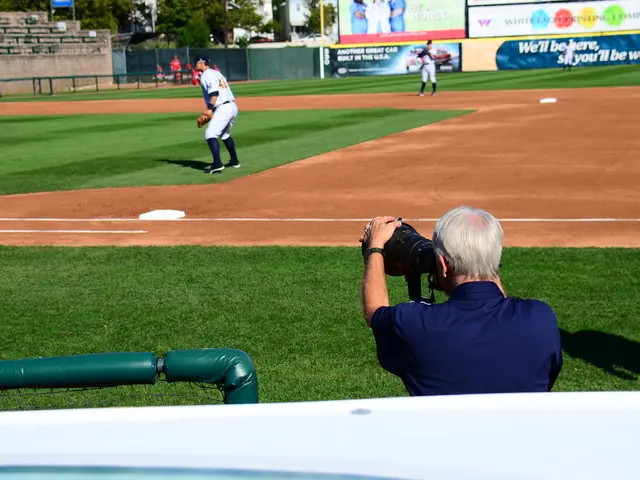"An extraordinary, thrilling, and long-awaited expedition unfolds – chronicling the overlooked women's Tour de France"
The upcoming film Breakaway Femmes promises to shed light on a significant yet often overlooked chapter in the history of women's cycling - the Tour de France Féminin. This groundbreaking women's stage race was held between 1984 and 1989, marking a crucial period for female athletes in a time when women's sports were frequently marginalized.
Organised by the Société du Tour de France, the race shared finish lines with the men's Tour de France, albeit with shortened routes. The event's historical significance lies in providing a high-profile competitive platform for women's road cycling, offering a stage for major rivalries like that between France's Jeannie Longo and Italy's "Flying Mum", Maria Canins.
Despite attracting media and public interest, the race was discontinued after 1989 primarily due to economic constraints. The simultaneous nature of the women's event with the men's, coupled with the shared course, proved too costly to maintain.
Following its discontinuation, the event transitioned to the Tour de la CEE féminin but lost relevance and ended by 1993. The absence of a major women's Tour on a Tour de France scale persisted until the modern revival of the Tour de France Femmes in 2022.
The return of the women's Tour de France has been met with some controversy. Sponsors have tagged their names on the end of the race title, and it has a shorter duration, with one tenth of the prize money given to the men.
Director Eleanor Sharpe, while making a documentary about Trish Liggett, stumbled upon the Tour de France Féminin. Her research led her to discover participants such as the first Tour de France Féminin winner, Marianne Martin, and Chinese rider Li Wang, who finished 8th overall in 1985 despite facing language and culture barriers and altitude sickness.
Trish Liggett herself played a significant role in the event, serving as the general manager of the Great Britain women's Tour de France team in the 1980s and recording hours of Tour de France coverage on VHS tapes, including updates on the progress of the women's race.
Jeannie Longo, a three-time Tour de France Féminin champion, was known for her rough edges and ruthless, single-minded approach. Her relationships with other riders were often uncomfortable, yet director Sharpe decided to air these interactions in her documentary.
Many of the women who raced in the Tour de France Féminin felt they didn't have the permission to tell their stories. Canadian rider Kelly-Ann Way, who won a stage in the 1984 Tour de France Féminin, states that she is part of a big group of women who changed the face of women's cycling and challenges anyone to make her invisible.
The Tour de France Féminin serves as a poignant reminder of the challenges faced by women in professional cycling and the strides made towards achieving equality. Breakaway Femmes promises to bring these stories to light, offering a fascinating insight into the history of women's cycling.
[1] Tour de France Féminin: A Brief History, Cycling Weekly. (2022). [Online]. Available: https://www.cyclingweekly.com/news/racing/tour-de-france-feminin-history-434847
[2] Breakaway Femmes: The Untold Story of the Tour de France Féminin, The Guardian. (2022). [Online]. Available: https://www.theguardian.com/sport/2022/aug/20/breakaway-femmes-the-untold-story-of-the-tour-de-france-feminin
[3] Breakaway Femmes: A Documentary Shining Light on the Tour de France Féminin, Vogue. (2022). [Online]. Available: https://www.vogue.co.uk/culture/article/breakaway-femmes-tour-de-france-feminin-documentary
Read also:
- Weekly happenings in the German Federal Parliament (Bundestag)
- Southwest region's most popular posts, accompanied by an inquiry:
- Discussion between Putin and Trump in Alaska could potentially overshadow Ukraine's concerns
- Massive 8.8 earthquake hits off the coast of Russia's Kamchatka Peninsula, prompting Japan to issue a tsunami alert.







